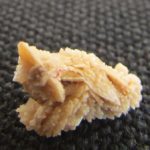
What are Kidney Stones?
The kidneys' function is to filter waste products from the body into the urine.
Under certain conditions, chemicals in the urine may form crystals, which combine to form a stone. Small stones may pass out by themselves during urination.
However, larger stones may be lodged in the kidney or urinary tract and may cause pain, bleeding in the urine and infection.
What is Extracorporeal Shockwave Lithotripsy (Extracorporeal Shockwave Lithotripsy)?
Extracorporeal Shock Wave Lithotripsy (ESWL) is a method of breaking up urinary stones in the kidneys or the ureters. It is a procedure that requires no incisions. The procedure takes about an hour and is done with no hospitalisation required.
During ESWL, carefully focused shock waves pass harmlessly through your body and hit the stones, causing them to break into small fragments. These fragments are then passed out in your urine.
How is Extracorporeal Shockwave Lithotripsy performed?
You will be asked to change into a hospital
gown.
• You will lie comfortably on the procedure table. An intravenous line will be inserted in your arm and intravenous anesthesia will be given to put you to sleep.
An ultrasound machine or X-ray will pinpoint the exact location of the stone and focused shock waves are then delivered to the stone.
• You will feel a tapping sensation as the shock waves pass harmlessly through your body. This sensation is likened to a rubber band snapping onto your body. Our staff will be present throughout the procedure to provide continuous care.
• Each treatment takes about 45-60 minutes.
What are the Risks of Extracorporeal Shockwave Lithotripsy ?
Complications from ESWL are rare, but may include the following:
- Bruising or bleeding from the kidney or skin
- Swollen kidney due to obstruction of the ureter as a result of jammed stone fragments
- Urinary tract infection due to release of bacteria from the stones
- Failure of the stone to fragment
- Bruising or bleeding from the kidney or skin
- Swollen kidney due to obstruction of the ureter as a result of jammed stone fragments
- Urinary tract infection due to release of bacteria from the stones
- Failure of the stone to fragment
All Services
Opening Hours
| Monday – Saturday | 7.00 AM – 5.00 PM |
| Sundays & Holidays | Closed |
Book Appointment
Quick Contact
- Address Alabang Stone Center Ground Floor, Alabang Medical Center Alabang-Zapote Rd, Cupang Muntinlupa, 1771, Metro Manila
- Email info@metrosouthurology.com
- Phone +63 2 7443798 / +63 917 7070089




